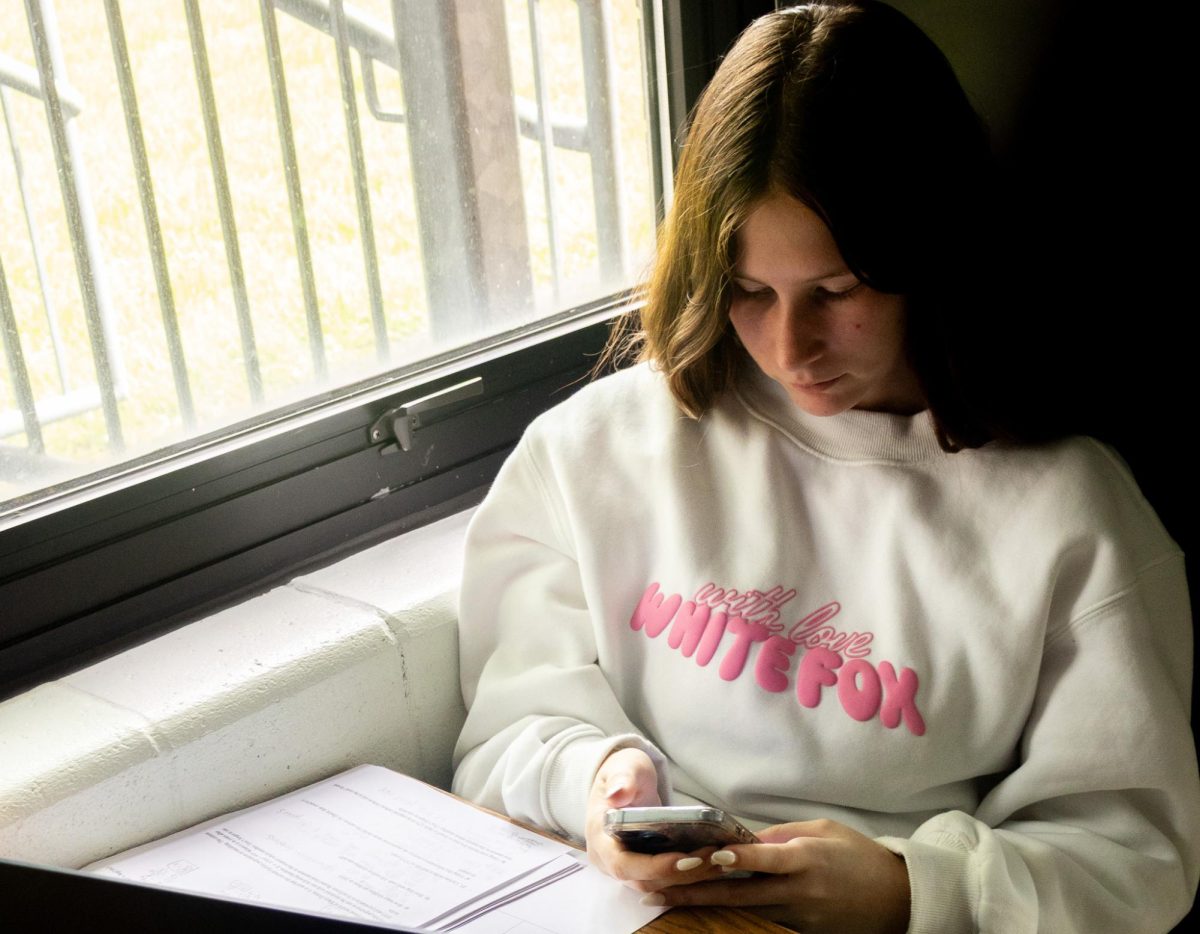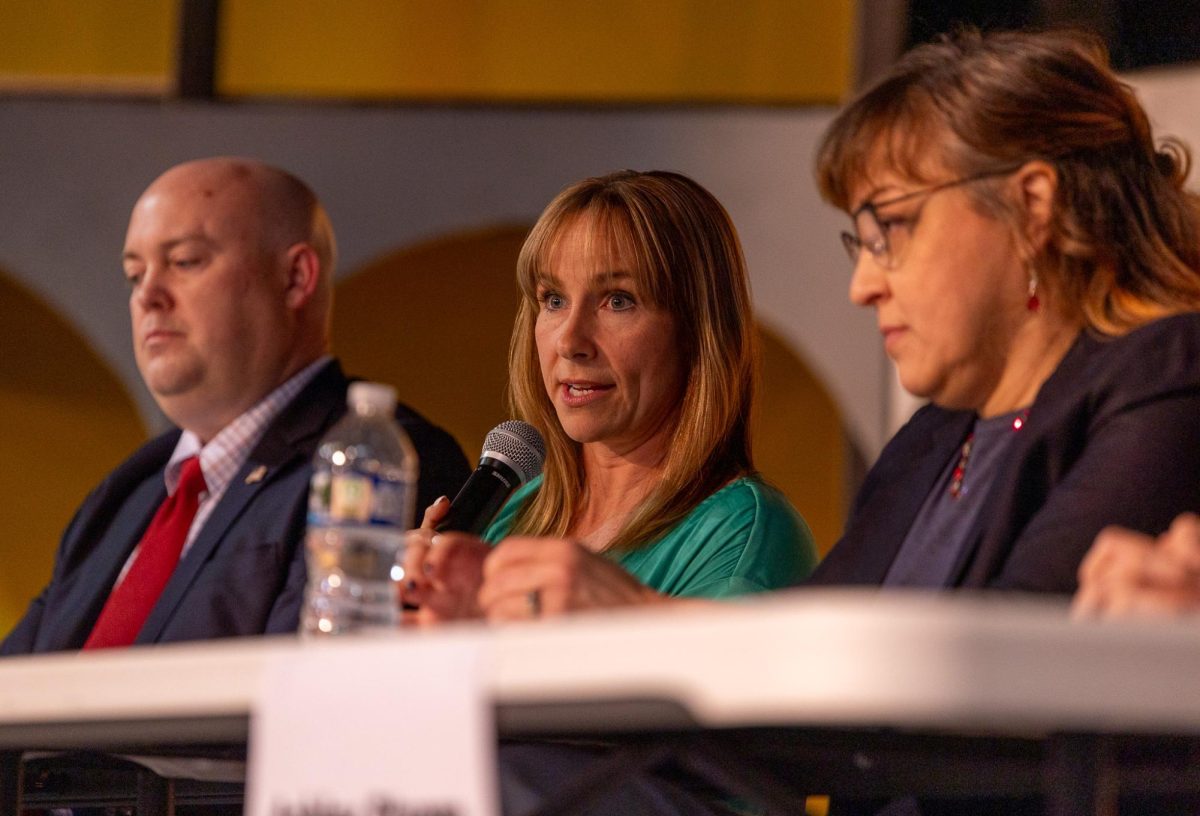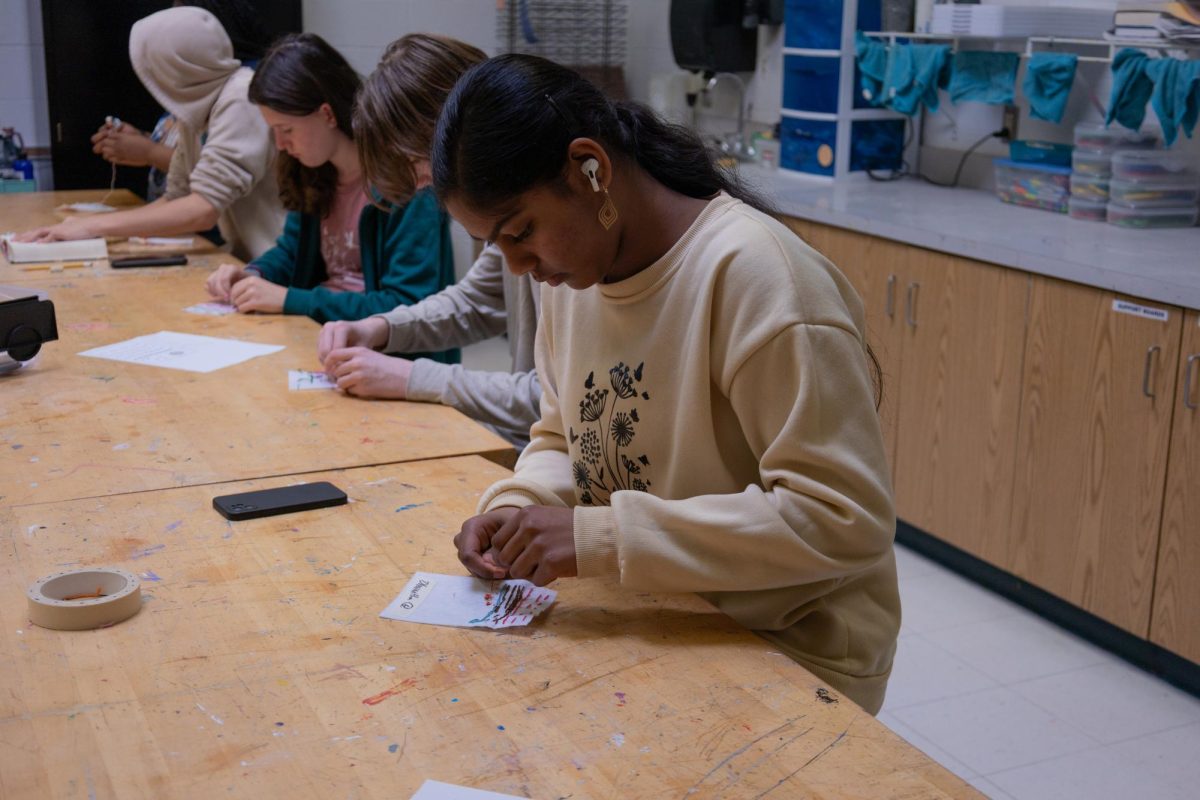The Francis Howell School District announced a new policy regarding cell phone use for the 2025-2026 school year, listing partial restrictions for high schools and a full restriction for elementary and middle schools. Elementary and middle schoolers must have their phones silenced and put away at all times. High schoolers may use their devices during passing periods, lunch, before and after school, and when required for educational purposes.
Students have mixed reactions. Some, like junior Dannie Little, believe the new policy is unnecessary since high school students can hold themselves responsible for their own phone usage.
“It’s something that [students] can definitely control if they value school enough and if they value their education,” Little said. “If you want to learn, you would already know better than to be on your phone during class.”
Junior Jack Arle is among the students who support the new policy, believing high schoolers do not have accountability when it comes to their devices.
“I don’t think people can be responsible for themselves,” Arle said. “The addiction is too real. It’s just too strong. I don’t see anybody, or most people, getting rid of their phone addiction without parameters like that.”
Math teacher Dena Dauve sees the phone addiction in students similarly.
“I don’t think they know, unless it is taken away, or unless it’s out of sight, how to put it away,” Dauve said. “Most kids really are addicted…If I’m not constantly prompting or engaging, they immediately go to [their phones].”
Dauve’s biggest issue with student cell phone use is how it detracts from the community in her classroom. Before cell phones, students used downtime in class to talk about math and interact with each other. Now, they turn to their phones instead.
“That’s something I really like in my classroom, is for kids to talk and to interact with each other, have conversations about math or whatever,” Dauve said. “I miss that in a sense.”
Arle’s support for the new policy stems from his own experience in school after limiting his own screen time. After cutting down on social media and using his phone in school, his focus in class “skyrocketed.” In addition to being a classroom distraction, Arle also thinks phone use contributes to mental health issues in many teenagers. These factors make Arle a firm supporter of the new district policy.
“I totally agree with it. I think it [phones are] ruining our education, for sure. I mean, I’m actually kind of happy that it’s being put in place, because not enough people realize how detrimental [phones are] to their health, not only in class, but also mentally, it’s not good for you.”
Little thinks removing cell phones from classrooms may temporarily prevent distractions, but students will turn to other distractions instead of focusing on their classes.
“Whenever people are told to put their phones away, they’re not just focusing on what’s going on in class,” Little said. “They just find another way to get away from school, or just kind of sit there and do nothing. But I guess that’s kind of the kids’ choice whether or not they want to learn, right?”
Even though limiting cell phones may not be the perfect solution to in-class distractions, Dauve believes that many teachers will appreciate the new policy. She appreciates it for its potential to bring focus and engagement back into classrooms.
“I think it will force kids to be more engaged,” Dauve said. “I think it will force kids to go back to having conversations. I’m very excited that I can now have a policy from the district that backs me up.”










